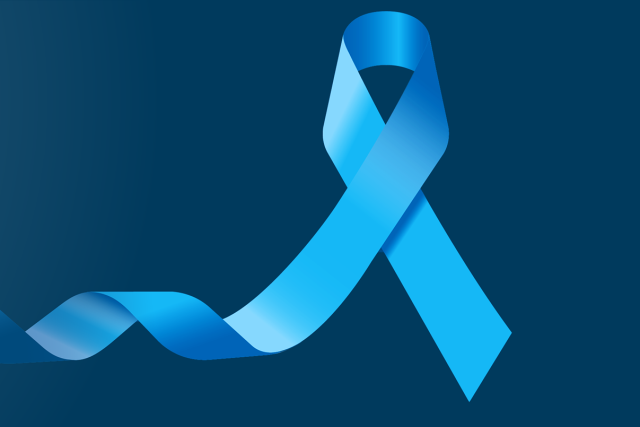Colorectal Cancer Screening and Digestive Health
One in three adults is overdue for colorectal cancer screening
What is colorectal cancer screening?
Colorectal cancer screening is a way to check for signs of colorectal cancer and digestive health before symptoms appear. Screening options include colonoscopies and stool tests which help doctors:
- Find and remove polyps before they become cancerous
- Detect cancer early when it's easier to treat and cure
Screening saves lives and protects digestive health by catching colorectal cancer early, and in many cases, preventing it altogether.
Who needs colorectal cancer screening?
Did you know that more young people are being diagnosed with colorectal cancer than ever before?
Colorectal cancer is common — it’s the third most diagnosed cancer and second most common cause of cancer deaths in the U.S. — and it’s affecting people earlier in life. Since the mid-1990s, colorectal cancer rates in adults under the age of 55 have been rising at a pace of 1% to 2% year.
UCLA Health strongly recommends that adults at average risk of developing colorectal cancer begin colon cancer screening at age 45. Screening starting at age 45 is also supported by several professional medical societies, including the United States Preventative Service Task Force (USPSTF) and the American Cancer Society (ACS).
For those with a family history of colorectal cancer or genetic factors that increase risk, colon cancer screening should happen at age 40 or earlier. Talk to your doctor about the right age to get screened.
What are the types of colorectal cancer screening?
There are many types of colorectal cancer screening tests that can detect and prevent colorectal cancer. At UCLA Health we recommend the two tests with the most scientific evidence:
- Colonoscopy screening involves a doctor using a thin, flexible tube with a camera to check the colon for polyps or signs of cancer. If the first colonoscopy is normal, it will need to be repeated in 10 years for those at average risk for colorectal cancer. Getting a colonoscopy screening? One bowel prep may not be right for everybody. Pick the best prep for you and see how to prepare.
- Fecal immunochemical test (FIT) kit stool tests involve collecting a small sample of your stool at home and sending it to a lab for testing. After the first stool test at age 45, these tests are recommended every year for those with average risk of colorectal cancer. See how to prepare.
Consult your doctor to determine the best type of colorectal cancer screening and schedule for you based on your personal health factors.
Schedule your screening
If you meet the criteria for a colorectal cancer screening, follow these steps:
- Talk to your primary care provider (PCP) about a colonoscopy or FIT kit. If you don’t have a PCP, request an appointment with one.
- Wait for your PCP to submit an order for a test.
- After your PCP places an order in the system, schedule your colonoscopy by calling 310-825-7540.
Request a Screening
Request an appointment with your primary care provider and ask them to submit an order for a colorectal cancer screening.
Helpful Links

Our stories
Meet some of our amazing patients who advocate for change by sharing their stories of overcoming their fear of colorectal cancer screening and breaking the stigmas associated with testing.
Lifelong Dodgers fan turns unforgettable double play
The 53-year-old U.S. Navy veteran, a lifelong Dodgers fan who began attending games with her father when she was a child, was delighted to share her story and promote the importance of screening at a preseason Dodgers-Angels game where she toured the stadium with her family and threw out the ceremonial first pitch. Angie was subsequently also honored at one of the first official games of the 2023 season. “Since African-Americans are particularly at risk for colorectal cancer, getting the message out that screening saves lives is especially important,” said Jones. “I’m living proof of that.”
